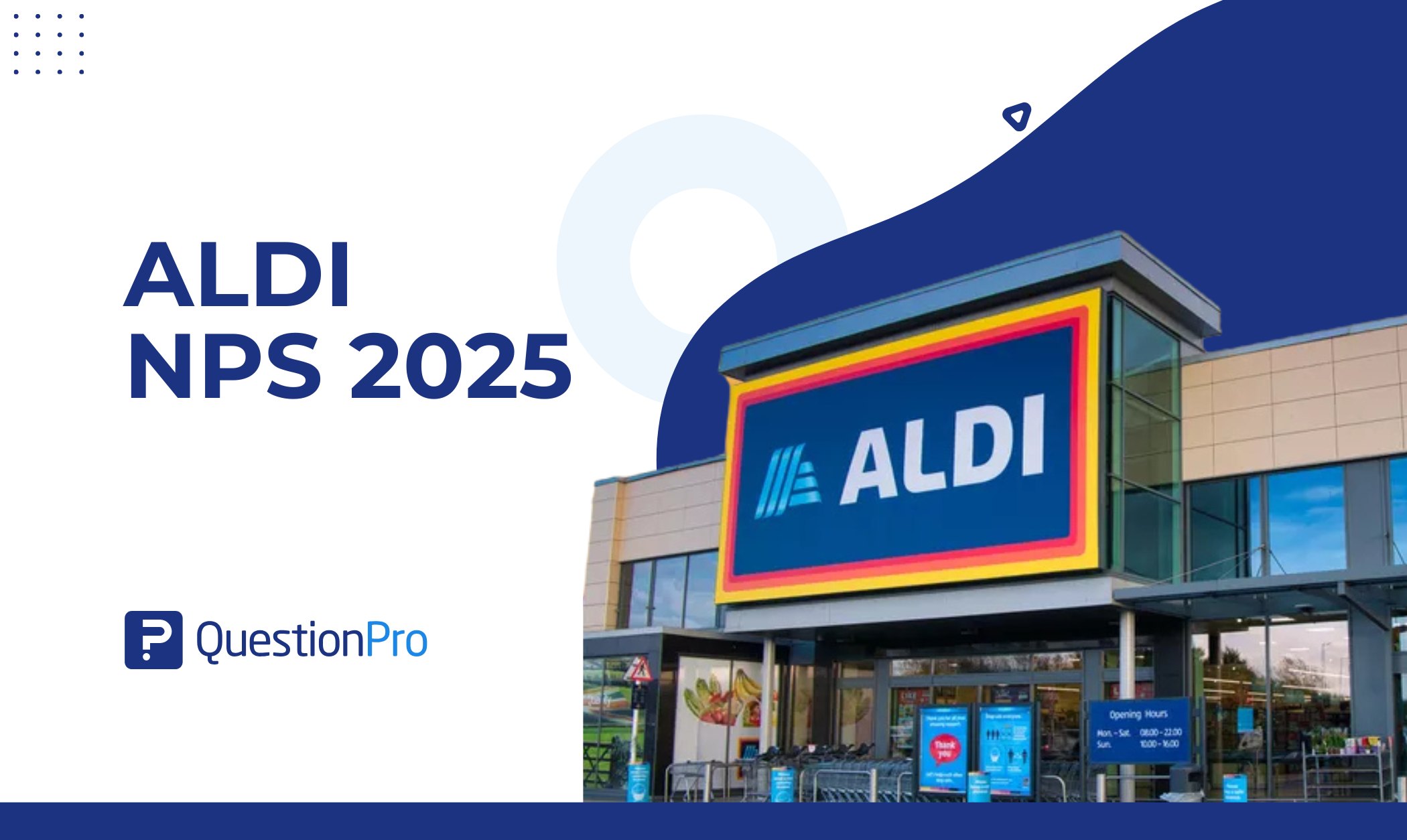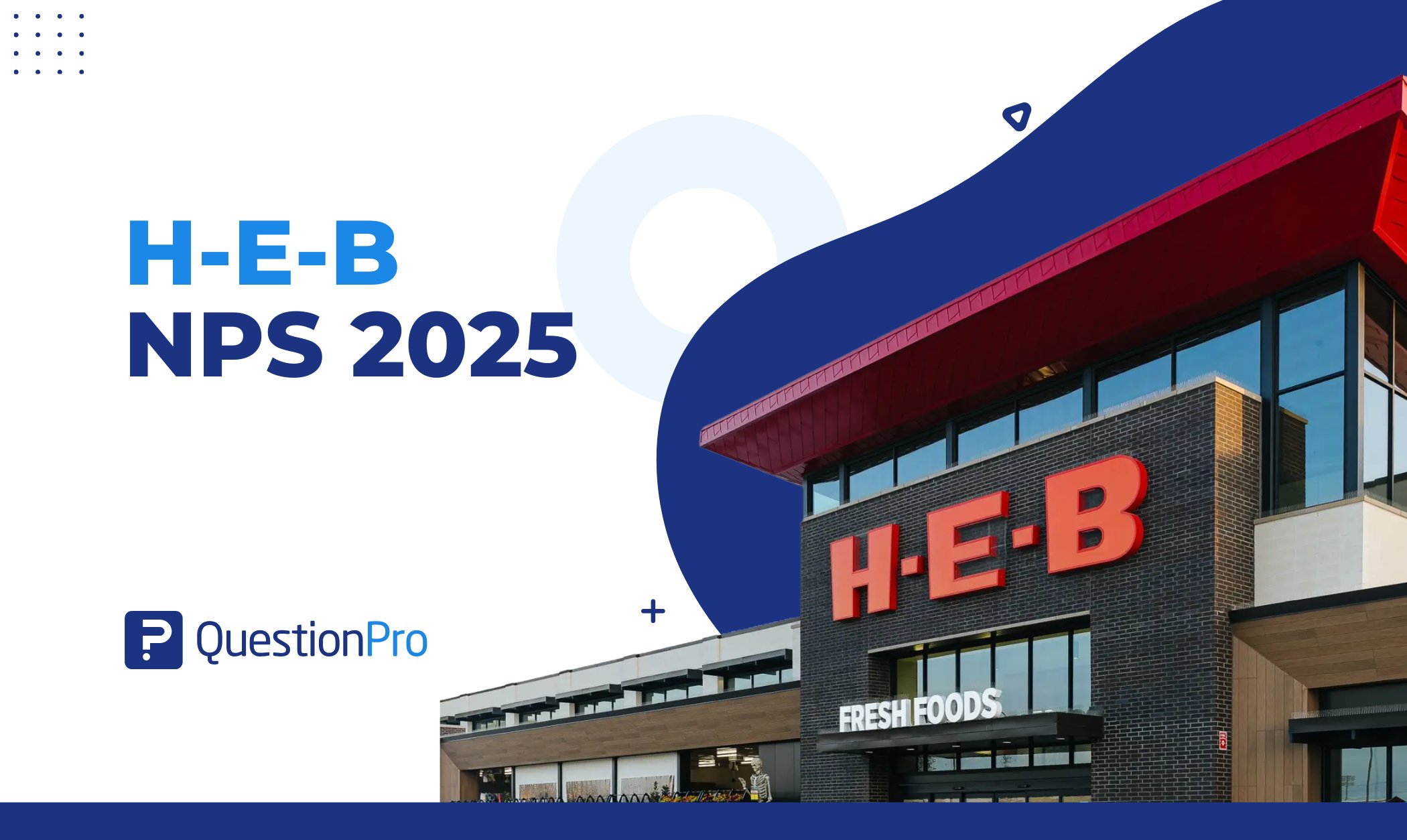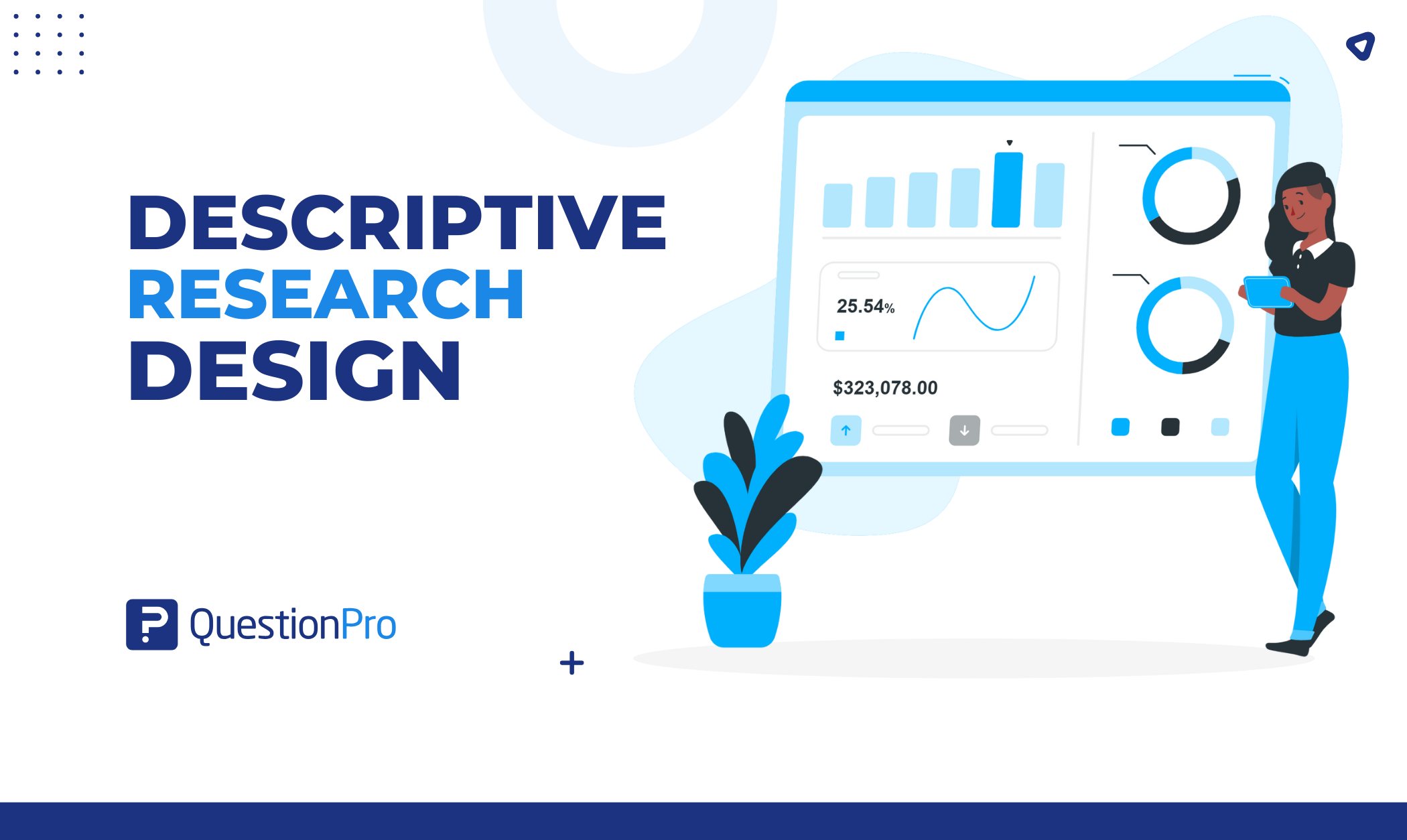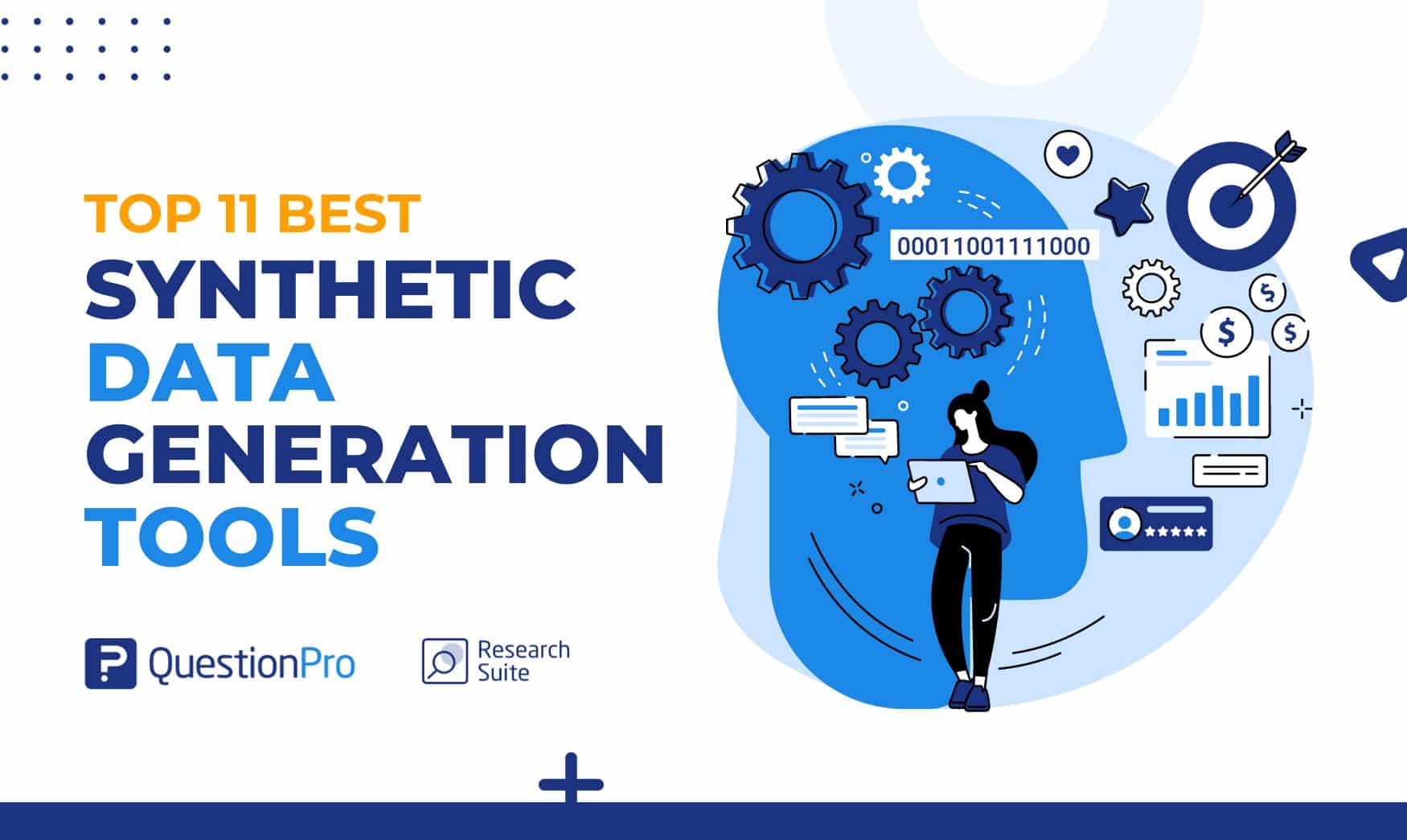
After the major disruption caused by the emergence of AI generation tools, many industries have adopted them to leverage their capabilities and achieve better results. The market research industry was no exception, and one of the most innovative applications has been Synthetic Data Generation tools.
However, with the rise of this technology, concerns have emerged regarding data security and how this new type of data can be used in research.
If you are looking for synthetic data, you may wonder whether purchasing a solution from commercial synthetic data vendors or using your own tool is better.
To help you understand their strengths and how to make the most of this methodology, we have gathered the best synthetic data tools on the market.
What Is Synthetic Data Generation?
Synthetic Data Generation is the name given to the process used to create artificial data that mimics real-world data. This data is generated algorithmically rather than collected from actual events or real-life sources.
It can be used in a variety of fields, such as data analysis, machine learning, and testing applications, often when real data is scarce, expensive, or privacy-sensitive.
This synthetic data is a substitute for actual data, allowing you to conduct experiments, develop algorithms, and perform analyses without exposing sensitive or private information.
You can generate synthetic data using algorithms and statistical models to replicate accurate data’s statistical characteristics and patterns. These algorithms create data points, often called “synthetic records,” that are statistically similar to the original dataset but do not reveal sensitive or confidential information.
This artificial data can include structured data, text, images, and more, making it versatile for various applications.
There are various tools that help research professionals utilize this type of data without having to worry about the technical aspects of the process. Additionally, there is no need to develop tools from scratch to generate this data.
Below we provide a list of open-source and commercial tools available in the market that can help you explore this fascinating field and take advantage of the benefits of synthetic data.
11 Best Synthetic Data Generation Tools
Here are the best 11 synthetic data generation tools revolutionizing data privacy, testing, and analysis.
1. MDClone
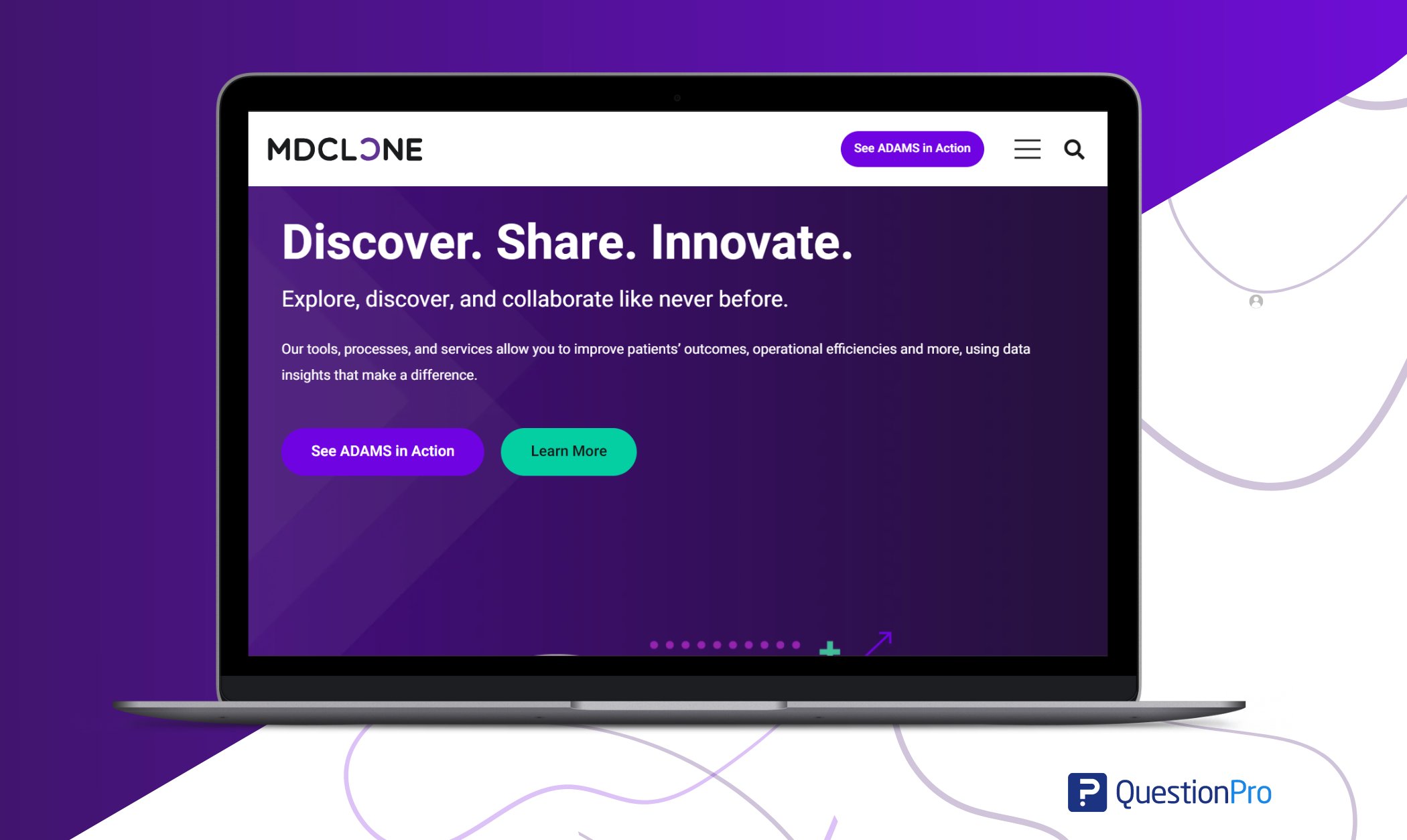
Due to many privacy considerations, evaluating patient data is frequently difficult in the healthcare industry. However, such issues are no longer an issue. MDClone is a synthetic data generator designed exclusively for healthcare professionals. It generates as much clinical data as you require from real patient profiles.
MDClone provides a systematic way to access healthcare data for research, synthesis, and analytics while avoiding the disruption of sensitive data. It can produce synthetic data from any sort of organized or unstructured patient-oriented data without revealing the patient’s identity.
You can frequently apply medical terminologies without coding and easily compare analytical results through in-depth visualizations. MDClone empowers you to share your findings and collaborate on research projects using the synthetic data it effortlessly generates.
2. MOSTLY AI
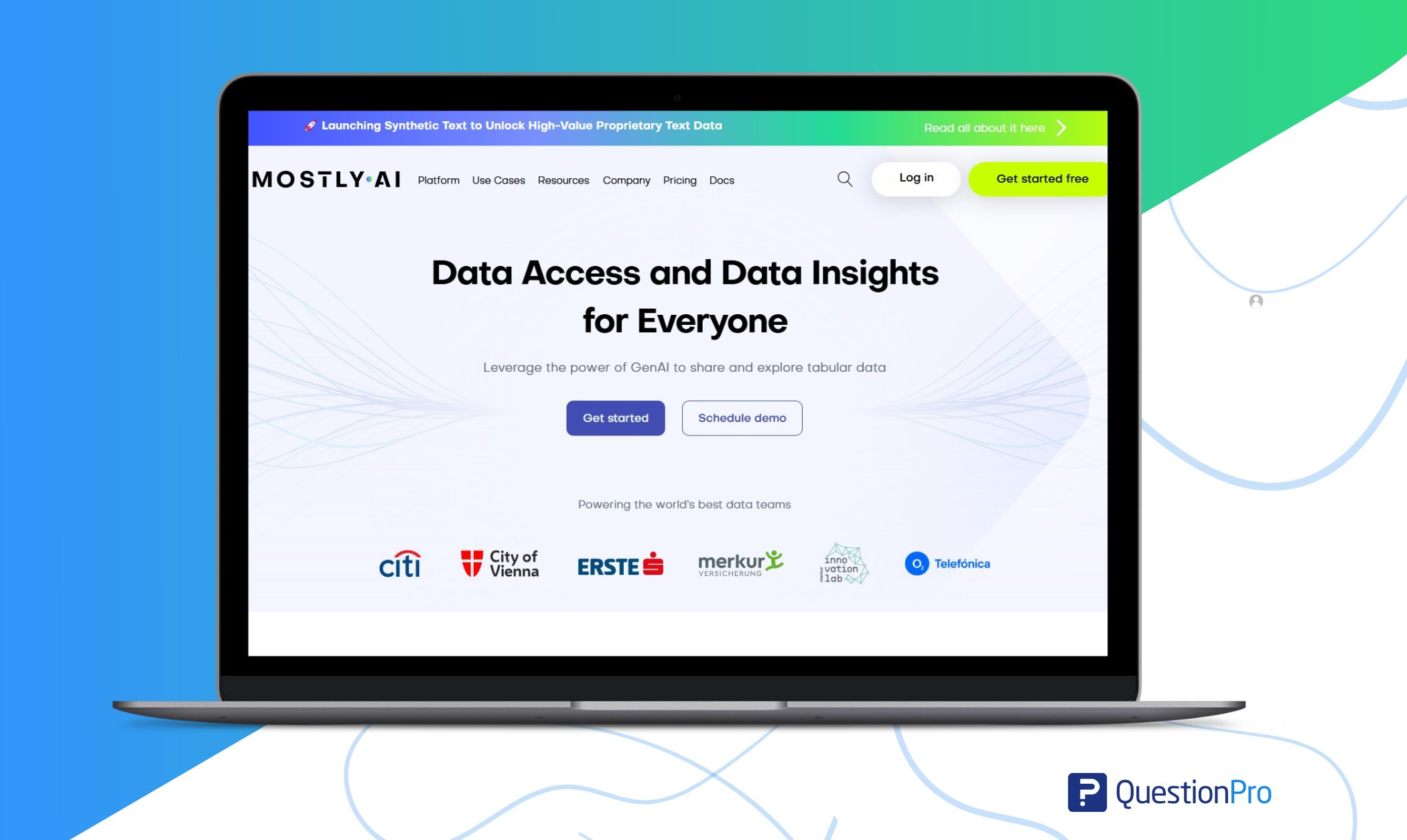
MOSTLY.AI provides the most accurate synthetic data. It lets you unlock, share, update, and simulate data. MOSTLY.AI employs the most advanced artificial intelligence or AI model to generate fake data that looks and feels like actual data. You can keep valuable, granular-level information while ensuring no individual is exposed.
MOSTLY.AI supports many data types, including structured data, text, pictures, and time series data. It can be used in various sectors and use cases, making it suitable for various industries and applications.
Additionally, MOSTLY.AI provides APIs and integrations that simplify incorporating synthetic data generation framework into your existing data workflows and applications.
3. Hazy
Hazy sets itself apart from the competition by offering models capable of generating top-quality synthetic data while incorporating a differential privacy mechanism. Whether your data is tabular, sequential, or spread across multiple tables in a relational database, Hazy has you covered.
Hazy’s innovative data modeling approach empowers you to accelerate analytics workflows without the inherent risks of collecting real customer data. With Hazy, you can confidently develop and test your analytics solutions while safeguarding sensitive information.
In the banking sector, where data privacy and transparency are paramount, Hazy provides a sense of security. Even though banks are expected to offer APIs to comply with GDPR policies, working with Hazy’s synthetic data provides an additional layer of assurance. It ensures companies can effectively monetize data by selling valuable insights without compromising customers’ identities and privacy.
4. BizDataX
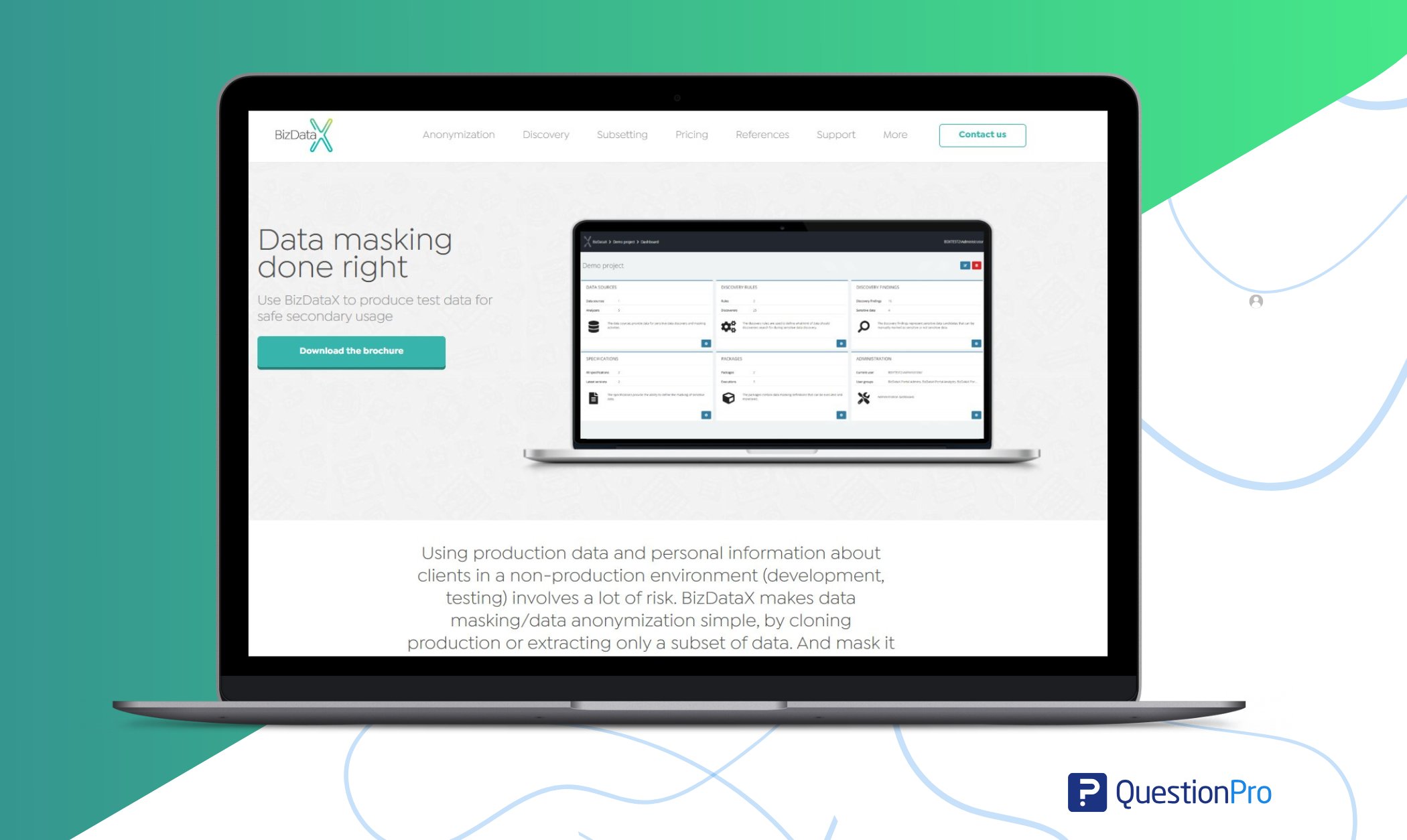
Whether you work as a test data engineer, bank professional, security officer, or business or data analyst, BizDataX gives you the tools to use synthetic data generation to protect personally identifiable information (PII) in your pre-production environment.
When you use BizDataX, you can feel confident that you are in compliance with GDPR rules. The platform includes comprehensive data masking algorithms to ensure that sensitive data is secured throughout your testing and analysis procedures.
Additionally, BizDataX’s automatic sensitive data discovery module effortlessly scans numerous databases to find and secure sensitive information. This powerful tool maintains referential integrity while efficiently lowering the size of your databases, optimizing them for rigorous testing without risking data security.
5. Ydata
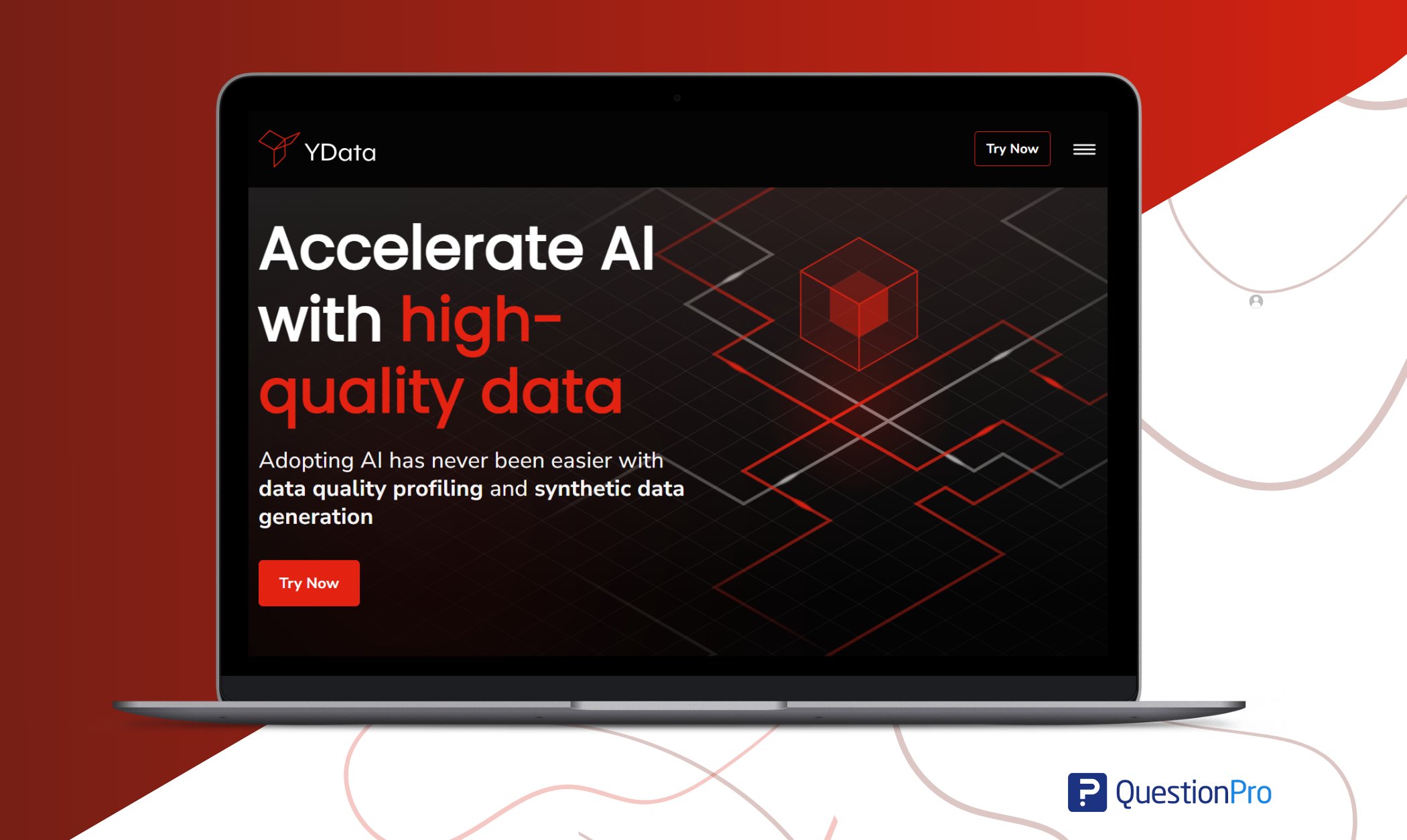
YData offers a data-centric platform that accelerates development and maximizes the ROI of your AI solutions. With YData, You can improve the quality of your training datasets and make them more robust and effective. Data scientists can use automated data quality analysis and cutting-edge synthetic data generation techniques to improve the performance of your dataset.
When it comes to data quality, YData goes the extra mile. It provides high-quality synthesized data and assures that it is free from bias or any personally identifiable information, which protects your privacy and compliance.
You can trust YData to reduce identity leakage and re-identification threats during inference attacks. They use the strict TSTR (Train Synthetic Test Real) method to evaluate AI-generated data for predictive model training, which gives you peace of mind and confidence in your AI efforts.
6. Sogeti
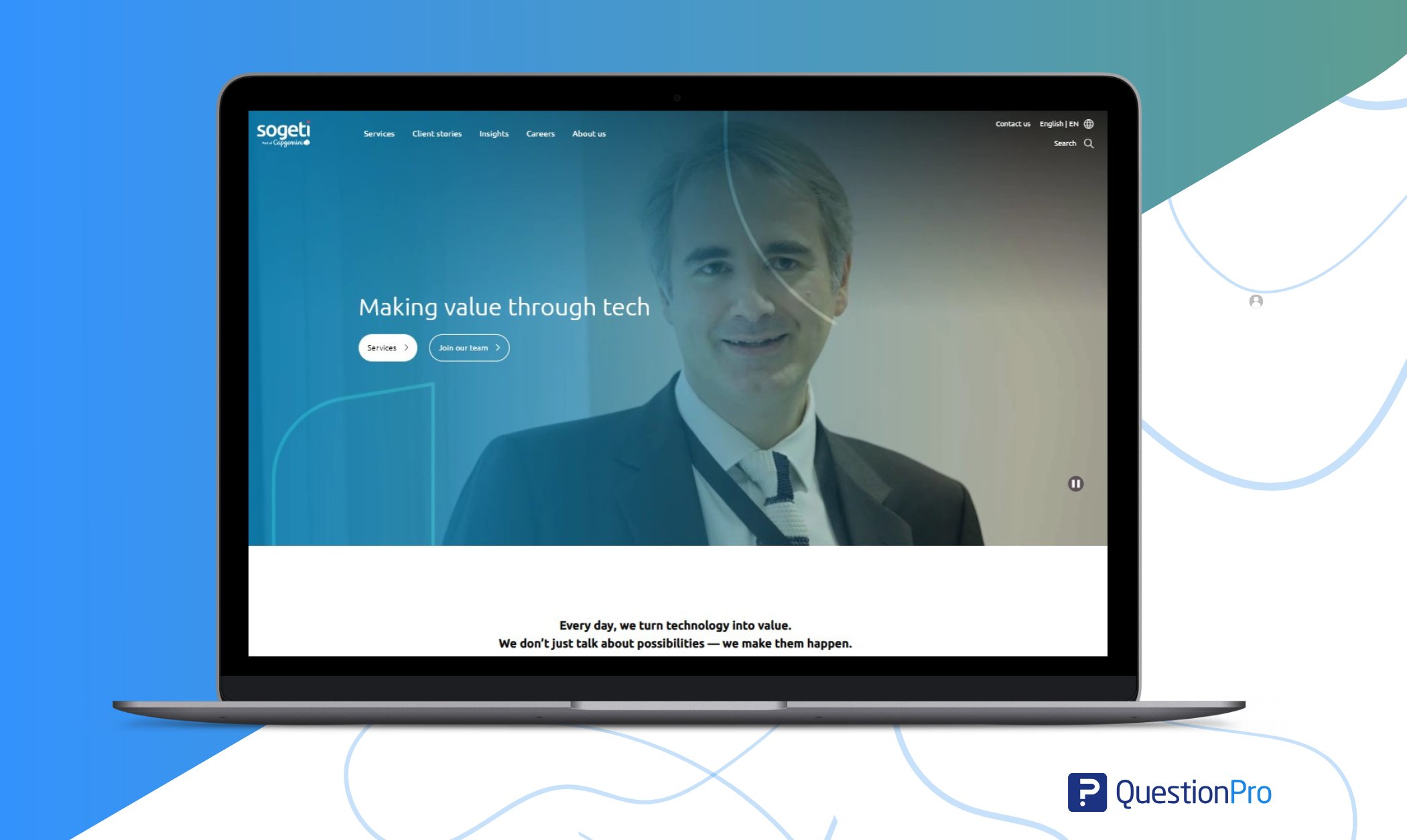
Sogeti is a cognitive-based tool for generating fake data. It is one of the most effective synthetic data generation tools, particularly for engineering, research, quality assurance, and testing.
You will benefit from Sogeti’s Artificial Data Amplifier (ADA) technology, which has the unique capacity to read and reason with data of any type. It is a synthetic structured data generator that also creates unstructured data. ADA uses deep learning techniques to recreate its recognition capabilities, distinguishing it from its competitors.
Sogeti assures that synthetic data maintains its original properties and patterns, keeping statistical similarities with the source data while protecting individual identities. It also goes above and beyond by fully complying with GDPR requirements, guaranteeing that client identities are anonymous.
7. Gretel
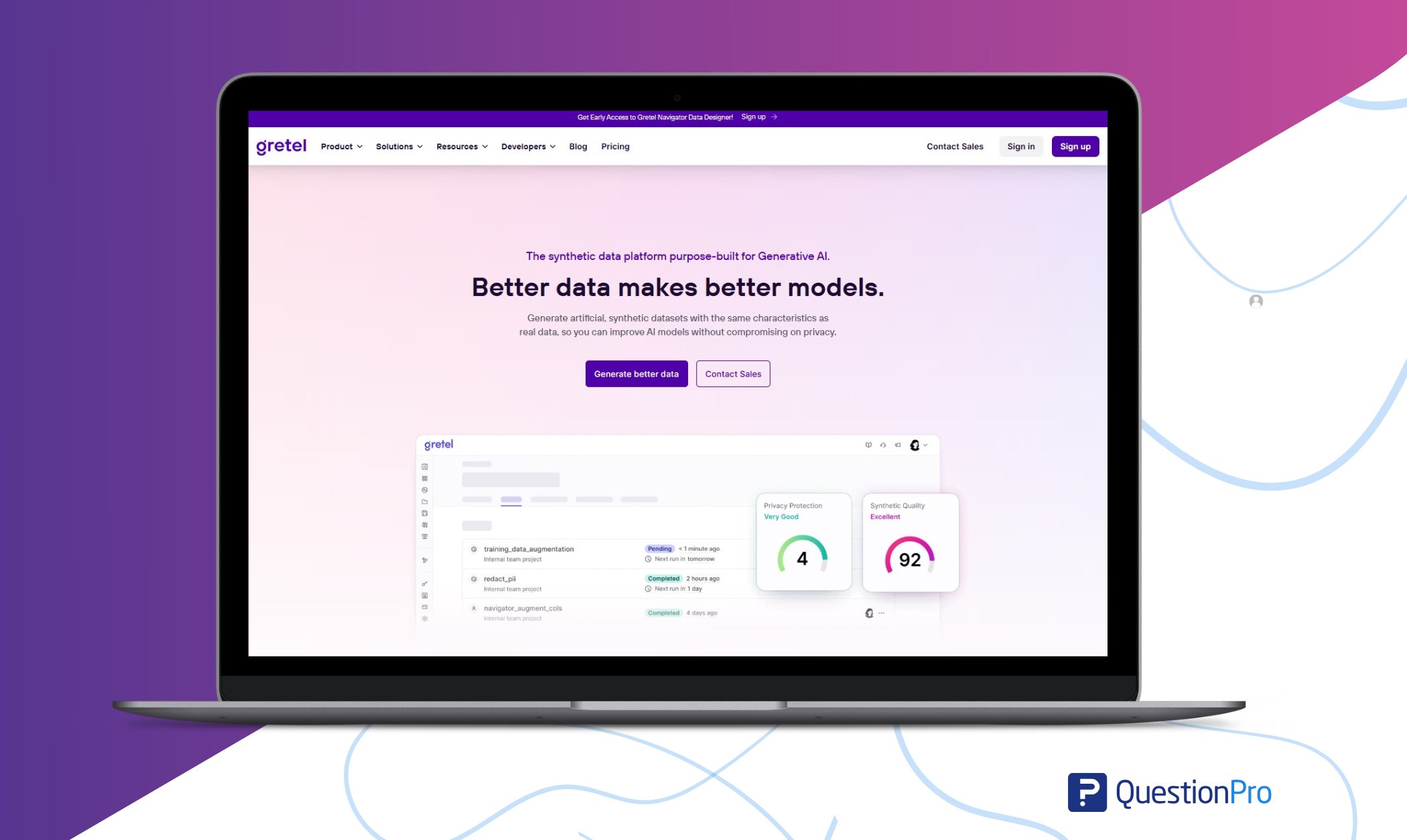
Gretel.ai is a new synthetic data generation tool for creating synthetic data. Gretel is a self-proclaimed “Privacy Engineering as a Service” that builds statistically similar datasets without using sensitive customer data from the original source.
Gretel’s ML method compares real-time information by employing a sequence-to-sequence model to enable prediction while generating fresh data and training the data for synthesis. Gretel also employs differential privacy, which ensures that no original data is memorized or re-identified in the system.
Gretel.ai allows you full control over processes for better management by processing data streams in real-time and providing many customization choices for setups. Gretel appears to be a promising next-generation synthetic data generator, with the platform promising to function in the banking, healthcare, and gaming industries soon.
8. Tonic
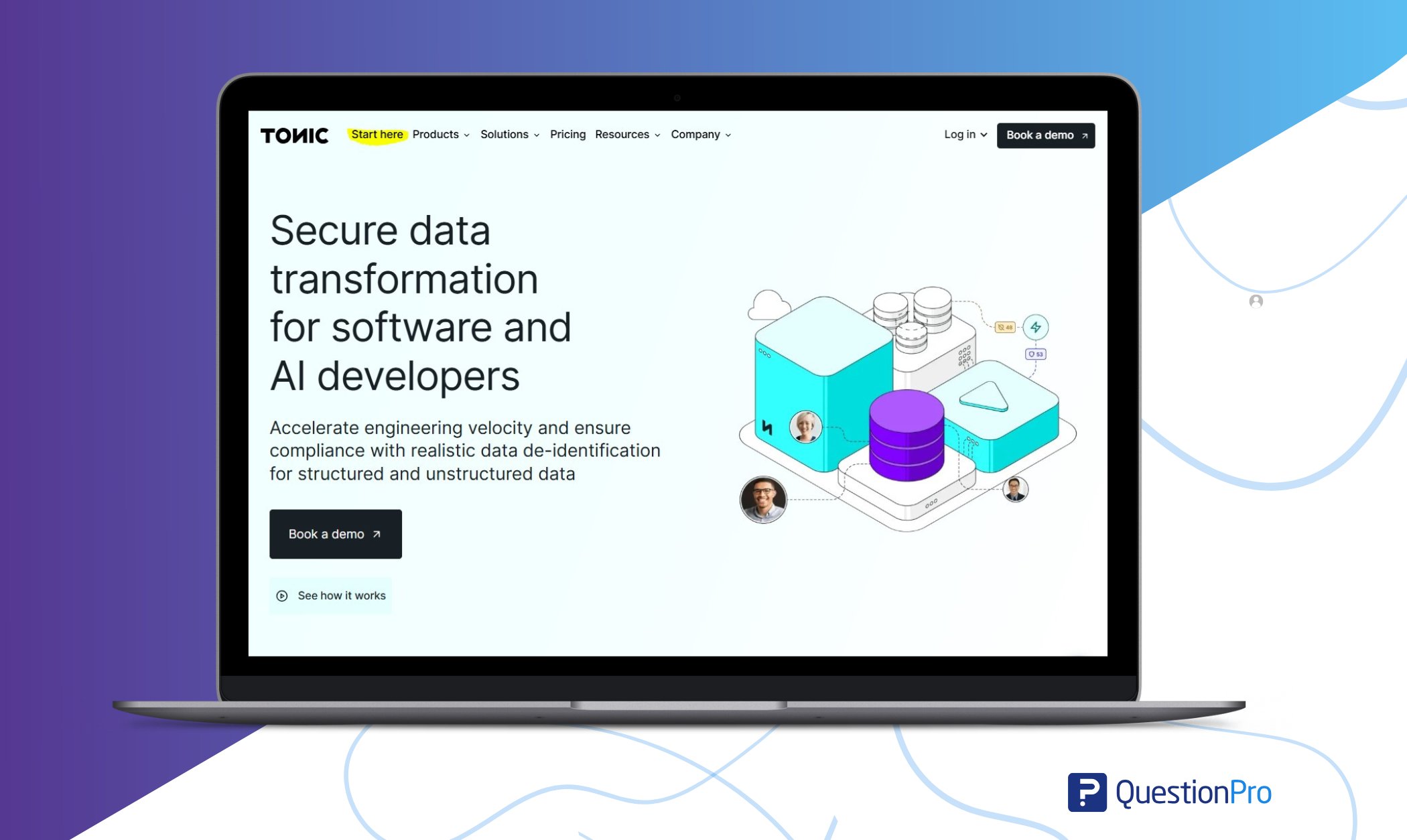
Tonic.ai offers an automated and anonymous data creation method for testing and development needs. With Tonic’s technology, you can rest assured that your data remains anonymous through database de-identification. This process separates PII from real data and prioritizes your client’s privacy.
Tonic’s powerful AI system categorizes distinct tables across databases using the Generative Adversarial Network (GAN) model. The platform preserves behaviors and dependencies within the data and allows the data science team to work with equally valuable data by eliminating hours of manual work.
Tonic also allows you to synthesize only a portion of data rather than the complete database. The feature reduces data size by using a patented cross-database subsetting approach.
9. OneView
OneView is a scalable, cost-effective synthetic data solution for accelerating remote sensing imaging analytics. The platform provides synthetic data solutions and generates virtual synthetic datasets for training machine learning models.
With OneView, you can avoid the time-consuming process of collecting, categorizing, and evaluating real-world photos from drones, aircraft, and satellites. The platform can generate customized datasets for any environment, object, or sensor.
With OneView, you can efficiently speed up remote sensing imagery analytics. It recreates the actual environment by adding randomization variables to each variable, such as weather, appearance, textures, colors, and so on, giving you a powerful tool for remote sensing analytics.
10. CVEDIA
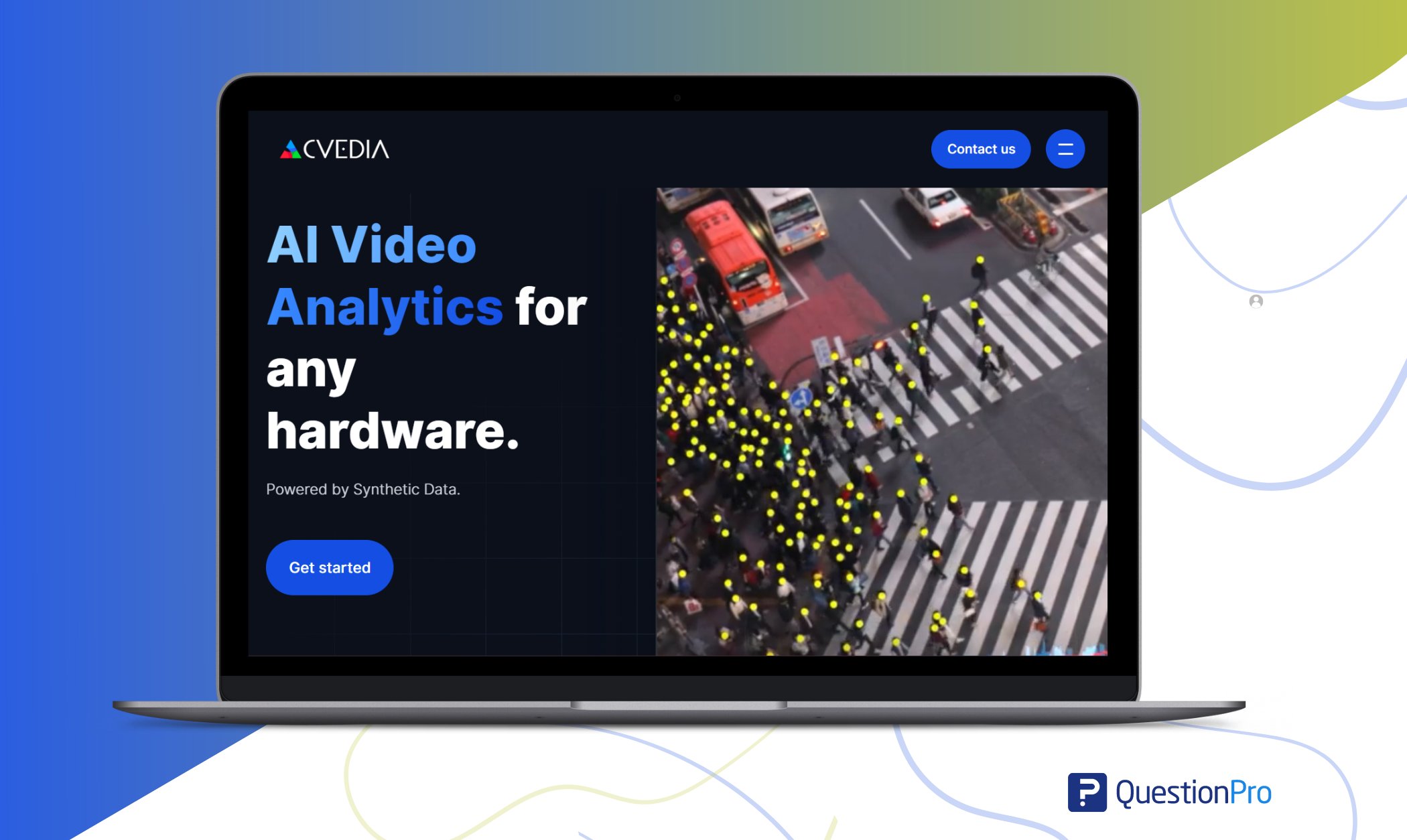
CVEDIA is an excellent alternative for a powerful computer vision cross-industry platform. The platform can generate synthetic data to power its AI and machine learning algorithms, and it does it effectively. CVEDIA’s patented simulation engine, SynCity, allows it to generate high-quality synthetic data, which is extremely useful for testing and training models based on neural network architectures.
CVEDIA has you covered whether you work in security, manufacturing, or aerospace. Through NVIDIA’s Metropolis initiative, the platform provides a holistic solution that addresses your hardware and software requirements.
As you use CVEDIA, you’ll notice that they provide a free personal license, making it available for research and development. When it comes to collecting synthetic data, you’ll need to contact the provider directly to receive a personalized estimate based on your exact needs.
11. Datomize
Datomize is a leading new synthetic data-generating tool. It specializes in creating fake client data for banks worldwide. The models learn the original data’s essential distributional properties and build high-quality duplicates.
Datomize makes it simple to connect to enterprise data servers like PostgreSQL, MySQL, and Oracle and process complicated data structures and dependencies with hundreds of thousands of tables. The system then extracts behavioral traits from the raw data and generates identical twins not connected to the original data.
A rules-based engine in the program allows analysts to produce data for new scenarios. They provide context by providing rules for a particular situation, and the engine generates the appropriate dataset.
Other Synthetic Data Tools
If the list seems too short and you want to explore even more tools, here are some additional options gradually gaining popularity in the market:
- SDV (Synthetic Data Vault): Open-source library for generating synthetic data for tabular, relational, and time-series datasets.
- Hazy: Uses AI to generate privacy-preserving synthetic data for analytics and compliance.
- Synthea: Focused on healthcare, it generates realistic synthetic patient data.
- Mockaroo: A simple tool for generating random test data in various formats.
- DataSynthesizer: Open-source tool that creates synthetic data with differential privacy guarantees.
- Neuromation: Uses deep learning to generate synthetic datasets for AI training.
QuestionPro, the Missing Piece in Your Journey to Using Synthetic Data
QuestionPro is a powerful online survey and research platform, and while it primarily focuses on survey creation and data gathering, it can indirectly help synthetic data generation. After all, real data is an essential part of the synthetic data generation process. Here are some QuestionPro features and platforms that you may find helpful:
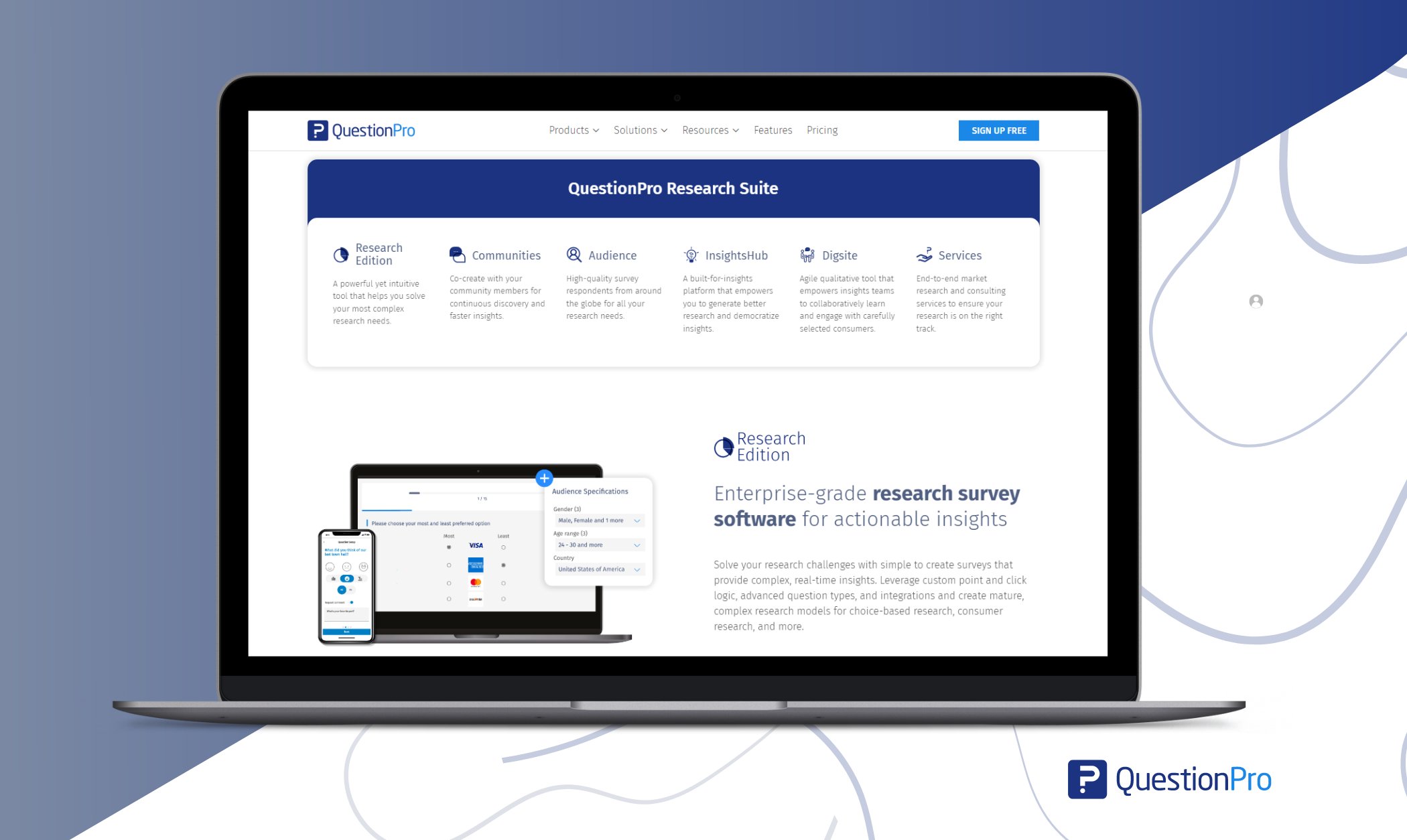
- Surveys and Questionnaires: QuestionPro allows you to create custom surveys and questionnaires to collect real-world data from respondents. You can use this data as the basis to generate synthetic data.
- Data Cleaning and Structuring: Once you collect survey data using QuestionPro, you can use the platform’s data cleaning and structuring features to ensure the data is consistent and well-organized before using it as input for synthetic data generation.
- Data Analysis Tools: QuestionPro provides tools to help you identify patterns, trends, and correlations in your survey data. Understanding these patterns can be useful when selecting synthetic data-generation parameters to replicate the original data correctly.
- Data Security: QuestionPro prioritizes data security and provides solutions to protect the data collected through its platform. Protecting the privacy and security of genuine data is one of the most important considerations when generating synthetic tabular data.
- Survey respondents: If you don’t have data on your target audience, QuestionPro Audience can help you find respondents who fit your specific profile, thanks to its extensive participant panel.
Although QuestionPro does not currently directly generate synthetic data, it is already developing these types of features to further increase the adoption of artificial intelligence in research projects.
Meanwhile, its platform is an essential component in data generation. It helps you collect, structure, and analyze real and synthetic datasets using specific synthetic data production tools and procedures.
While QuestionPro can assist with data collection, generating synthetic data usually requires the use of additional synthetic data tools, libraries, or platforms specializing in synthetic data creation techniques.
Ready to discover more about QuestionPro Research Suite’s features and boost your data collection and research efforts? Sign up for a free trial today to find the platform’s extensive survey creation, sharing, and data collection features.
Use our free trial to see how QuestionPro can assist you in making educated decisions and gaining meaningful insights.
Conclusion
Synthetic data generation represents a transformative approach in data science and artificial intelligence, offering a solution to several vital challenges surrounding data privacy, scarcity, and cost.
Creating artificial data replicating the characteristics of real-world datasets enables organizations to train machine learning models, test software, and conduct research without compromising sensitive information.
If you’re interested in exploring how AI is transforming the market research industry, we highly recommend checking out an excerpt from our latest webinar. In this session, industry expert Jeff Lawrence shares insights into cutting-edge synthetic data generation tools that reshape the market research landscape.
Discover how these innovative technologies are enabling more accurate predictions, enhancing data privacy, and providing deeper insights into consumer behavior. Don’t miss this opportunity to learn about the tools revolutionizing the industry and how you can leverage them to stay ahead of the competition.
Thank you for watching! We hope this webinar provides valuable insights and practical knowledge that you can apply to your own market research strategies. Stay tuned for more updates and future sessions as we continue to explore the impact of AI on market research.
Frequently Asked Questions (FAQs)
A: Synthetic data generation tools are software solutions designed to create artificial data that mimics real-world data. They ensure data privacy and security while providing valuable insights for various applications.
A: Synthetic data is artificially generated using algorithms and statistical models to replicate the characteristics of real data without containing sensitive or confidential information.
A: Yes, synthetic data generation tools are versatile and can be used across various industries, including healthcare, finance, automotive, and more, to enhance data-driven decision-making without compromising privacy.
A: Using synthetic data helps organizations comply with data privacy regulations like GDPR by allowing them to work with data that doesn’t reveal personal information or identity.
A: While QuestionPro does not generate synthetic data directly, it aids the process by providing robust data collection, cleaning, and analysis tools to serve as a foundation for creating synthetic datasets with specialized tools.




